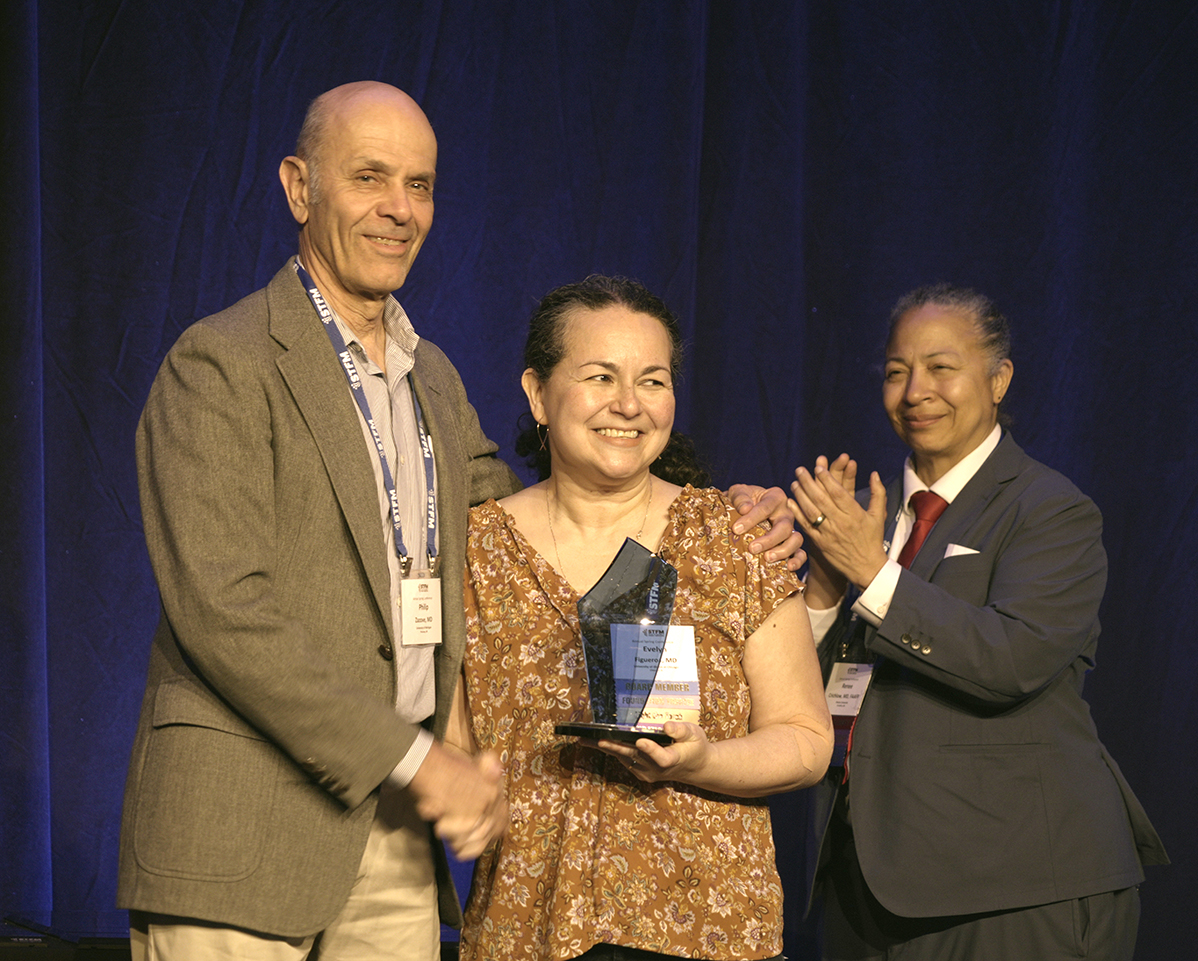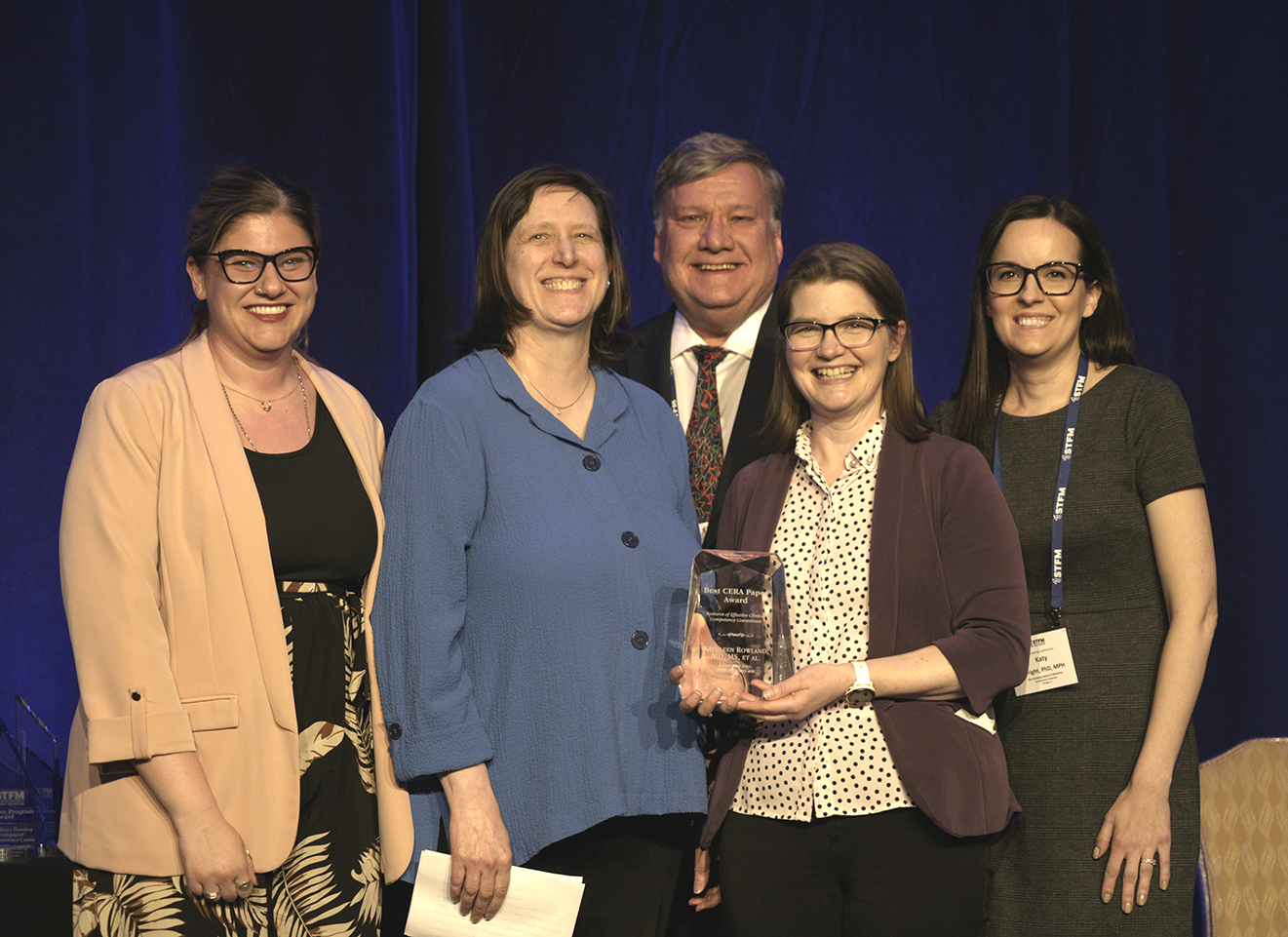May 4, 2025—The Society of Teachers of Family Medicine (STFM) recognized recipients of the organization’s annual awards and other recognitions during the 2025 STFM Annual Spring Conference.
Below are a list of the award winners.







F. Marian Bishop Leadership Award

Winner: Philip Zazove, MD, an active emeritus professor at the University of Michigan Department of Family Medicine
The F. Marian Bishop Leadership Award, established in 1990 by the STFM Foundation in honor of Dr F. Marian Bishop, honors individuals who have significantly enhanced the credibility of family medicine by a sustained, long-term commitment to family medicine in academic settings.
CERA Best Research Paper Award

Winner: “Features of Effective Clinical Competency Committees” by Kathleen Rowland, MD, MS; Deborah Edberg, MD; Lauren Anderson, PhD, Med; and Katherine Wright, PhD, MPH
The CERA Best Paper Award recognizes the best research paper based on a CERA study published in a peer-reviewed journal in 2024. This award is selected by the CERA steering committee.
STFM Research Paper of the Year Award

Winner: “Rapid Detection of Influenza Outbreaks in Long-Term Care Facilities Reduces Emergency Room Visits and Hospitalization: A Randomized Trial” by Jonathan L. Temte MD, PhD; Mary M. Checovich, MS; Shari Barlow, BA; Peter A. Shult, PhD; Erik Reisdorf, MPH; Thomas E. Haupt, MS; Irene Hamrick, MD; and Marlon P. Mundt, PhD
Accepted by: Jonathan L. Temte MD, PhD
The STFM Research Paper of the Year Award recognizes the best research paper published in a peer-reviewed journal between July 1, 2023 and June 30, 2024. The first author must be an STFM member. The STFM Research Committee bases the award selection on the quality of the research and its potential impact.
Curtis G. Hames Research Award
Winner: Peter F. Cronholm, MD, MSCE, CAQHPM, DABFM, professor and vice chair for research at the University of Pennsylvania
Supported by the Department of Family Medicine Through the MCG Foundation’s Hames Endowment of the Medical College of Georgia at Augusta University, the Curtis G. Hames Research Award honors individuals whose careers over the years exemplify dedication to research in family medicine.
STFM Advocate Award

Winner: Evelyn Figueroa, MD, University of Illinois Chicago professor and director of community engagement in the Department of Family and Community Medicine, and president of the STFM Foundation
The STFM Advocate Award honors STFM member(s) for outstanding work in political advocacy at the local, state, or national level. The recipient’s efforts are not restricted to legislative work but cannot be solely individual patient advocacy.
STFM Diversity Award

Winner: Diana N. Carvajal, MD, MPH, a practicing family physician, teacher, and health services researcher at the Department of Family Medicine and Community Health at the University of Wisconsin-Madison
The STFM Diversity Award recognizes an STFM member who best promotes innovative leadership, impact, and change that advances diversity, equity, and/or inclusion in family medicine education through the nominee’s work as a family medicine faculty member.
STFM Innovative Program Award

Winner: Rural Residency Planning and Development (RRPD) Technical Assistance Center
Accepted by: Emily Morris Hawes, PharmD, BCPS, CPP; and Cristen Page, MD, MPH
The STFM Innovative Program Award honors excellence in the development of an original educational program or activity for family medicine residents, students, or faculty and recognizes a broad interpretation of innovative family medicine programs to include innovative residency programs, clerkships, services, curricula, or other activities that have had a significant, positive impact on family medicine education.
STFM Excellence in Education Award
Winner: Jennifer Edwards-Johnson, DO
The STFM Excellence in Education Award recognizes an STFM member who has demonstrated excellence in teaching, curriculum development, mentoring, research, or leadership in education at regional or national levels.
Lynn and Joan Carmichael STFM Recognition Award

Winner: Arch Mainous III, PhD, adjunct professor at the Universite d’Etat d’Haiti, a special advisor on health care to the prime minister of Haiti, and a professor and vice chair of research at the University of Florida Community Health & Family Medicine
The Lynn and Joan Carmichael STFM Recognition Award honors an STFM member or nonmember for enhancing or supporting family medicine education by improving resources available for its support, by defense or support of its objectives, or by other notable service to the discipline at the national level.
STFM Presidents Awards

STFM’s Competency-Based Medical Education Task Force: Task Force Chair Linda Montgomery, MD; Maggie Curran, MD; Aaron Lambert, MD; Pamela MacMillan; Stephenie Matosich, DO; KrisEmily McCrory, MD; Fred Miser, MD, MA; Randolph Pearson, MD; Michelle Roett, MD, MPH; Mary Theobald, MBA; Priyanka Tulshian, MD, MPH; Olivia Rae Wright, MD; Velyn Wu, MD; Bright Zhou, MD, MS; Tonya Caylor, MD; and Regina Bray Brown, MD

Medical College of Wisconsin Department of Family and Community Medicine Leadership Team: Holly Westog, MEd; Sabrina Hofmeister, DO; Camille Garrison, MD; Linda Meurer MD, MPH
